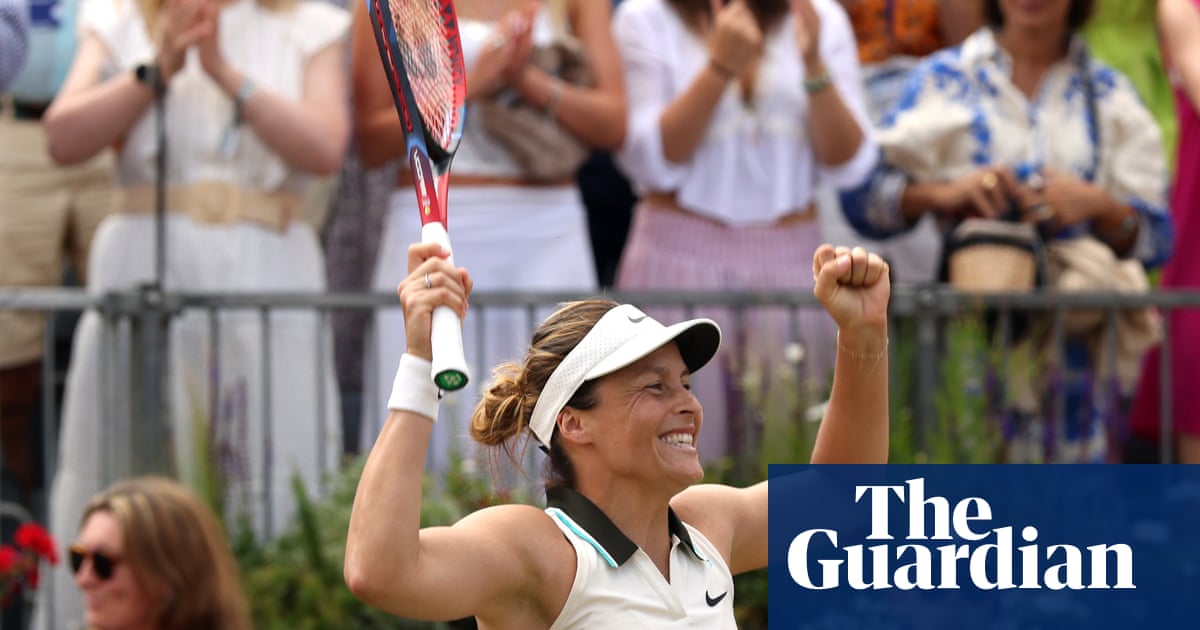Tatjana Maria knows a thing or two about fairytales, coming from the land of the Brothers Grimm and the Pied Piper of Hamelin, but not even the veteran German could have envisioned what has happened to her at Queen’s Club this week.
The 37-year-old arrived in west London having lost nine matches in a row and looking in danger of dropping out of the world’s top 100. Now – improbably – she has powered into the final having won six matches in a row and taken the scalp of the reigning Australian Open champion, Madison Keys, in the semi-finals. “I cannot believe it,” she said after outplaying Keys 6-3, 7-6. “It’s a dream come true.”
Maria’s game has long been built on chaos. She likes to fiddle and slice, to seek unorthodox angles and patterns, to leave her opponents lost in her matrix. The swirling wind around Queen’s beforehand must have been music to her ears. Still, no one expected this.
If the world No 86 was nervous beforehand, it did not show. She held her opening service games comfortably before breaking to go 3-1 ahead when Keys hit a backhand long. From then on she dropped four points on serve for the rest of the first set.
It was not that Keys was playing badly. But her power was sometimes left untamed and she had no answer to the wiles and guiles of her opponent. Early in the second set she could only look in admiration as she was lured in with a drop shot before a volleyed lob went over her head.
Maria continued to press and at 2-2, Keys had to save a break point at 30-40 with a 118mph ace. But when the American had a break point of her own in the next game, she was unable to capitalise. After that she never got another proper sniff.
After the second set went to a tie-break, Keys missed a chance of an early mini-break when she put a simple volley into the net. But from then on Maria was unstoppable. A wonderful backhand pass and a 116mph serve put her on the verge of victory before a mis-hit smash from Keys sealed the win.
Maria seemed at a loss to explain how she had turned things around. “You always have to keep going,” she said. “You can never can stop, no matter how it goes. I am a really good example of this. I’ve had my ups and downs but I love to play tennis, I love this sport, and we live for these special moments.”
Sign up toThe Recap
The best of our sports journalism from the past seven days and a heads-up on the weekend’s action
after newsletter promotion
This was certainly special. Having been a 159-1 outsider to win the tournament, Maria has now beaten three players in the world’s top 15, including the former French Open finalist Karolina Muchova and the 2022 Wimbledon champion, Elena Rybakina.
Waiting for her in the final will either be the Olympic champion, Zheng Qinwen, or the American Amanda Anisimova. And who is to say the fairytale is over yet?
